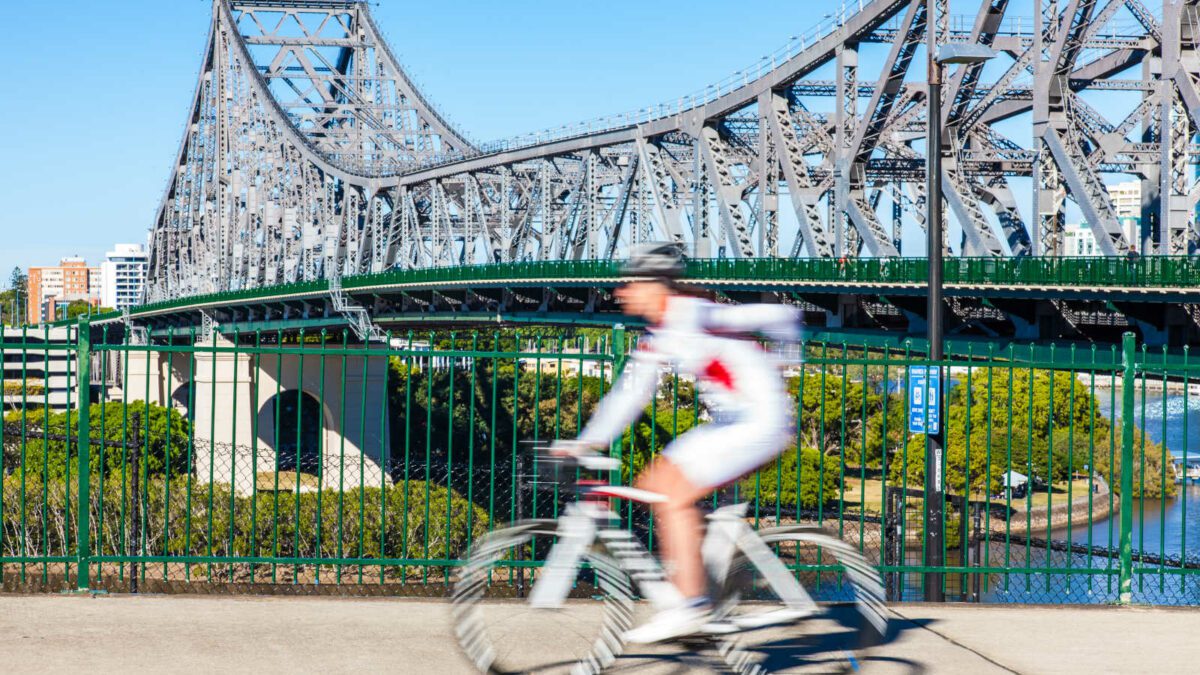Australian cyclists worried they will be fined for careless riding…for drinking from a bottle
New definition for dangerous riding seem to be too vague for some bike advocates in Queensland
 Photo by:
Getty Images
Photo by:
Getty Images
Australian cyclists are expressing worries about potential penalties for routine activities, like taking a sip from a water bottle. The proposed careless riding laws, applicable to both cyclists and e-scooter users, carry a maximum fine of AUD$6,192. It will apply to those who fail to ride with due care and attention on footpaths and bike lanes or paths. These legislative changes, presented to the state parliament last month, represent an expansion of existing regulations that already mandate cyclists to exercise due care on roads, according to a report from the ABC.
Definition of careless riding not spelled out
The Brisbane Central Business District Bicycle User Group (CBD BUG), in its submission to the parliamentary inquiry investigating these laws, strongly criticized the penalty, labeling it a “draconian overreaction.”
Paul French, of Brisbane CBD BUG, said there is a need for improved clarity in the new legislation. He advocated for its application to be restricted to situations involving actual crashes.
“We’ve posed the question in our submission: ‘What constitutes careless riding?'” According to French, the current wording is overly ambiguous. The group’s submission highlighted the potential for law enforcement to penalize riders for actions that have traditionally been considered “everyday, legal, and safe.” Specific examples listed include activities like drinking from a water bottle while riding, engaging in conversation with another rider, or glancing at a watch, the ground, or over the shoulder.
Enforcement should use common sense
The Department of Transport and Main Roads (TMR) stated that cyclists would not face penalties for commonplace riding actions. Including momentarily removing one hand from the handlebar to drink water. “This is not an issue for existing careless riding offences on roads. They already apply to bikes, and will not be an issue for the extension to road-related areas,” a spokesperson said. “Enforcement of the proposed new laws will be common sense and proportionate to risk. Police officers are well trained and operate under enforcement guidelines targeted at dangerous behaviour.” However, they also noted that it would depend on the exact circumstances. “Some examples could include dangerously swerving in and out of pedestrians on a crowded path. Or riding at an unsafe speed around a blind corner where pedestrians and other vulnerable users might be present.”
Member concern
Bicycle Queensland, expressed concern about the subjective nature of the term “without due care.” Andrew Demack, the director of advocacy for Bicycle Queensland, said the interpretation of booking a cyclist for operating their bike without due care could vary among police officers. “Our members are giving us feedback that they think that’s a bit of a concern,” he said.
According to the Queensland Police Service, a police officer suspects someone has committed an offence, they employ their judgment to ascertain the most suitable course of action. “Discretion is an officer’s freedom to make decisions on the job. And to decide whether and how, within legal bounds, they enforce the law,” they said in a statement. “A balanced approach is required to ensure community safety for all involved.”
